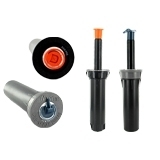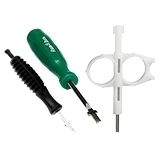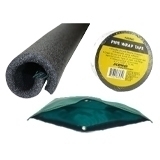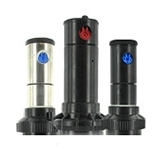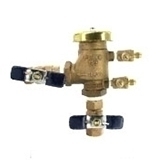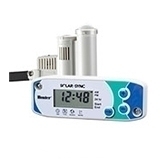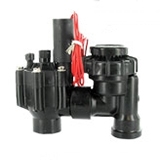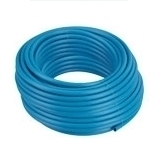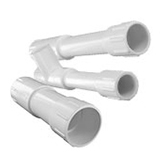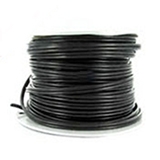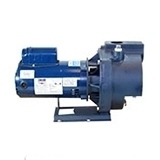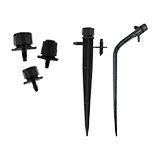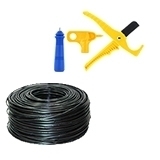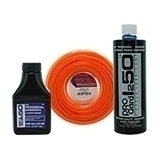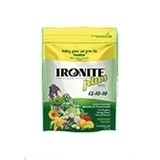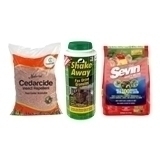What Is The Zika Virus?
This article explains how you can avoid the Zika virus. Here’s your anti-Zika arsenal. By Eliza Dewey.
There are a variety of mosquito repellent choices. The science of fighting mosquitoes has come a long way. Old-time moonshiners and poachers in the Everglades kept swarms at bay with smoke pots and netting made of cheesecloth sacks.
Today, with Zika cropping up in Miami, a host of products and services claim to stop mosquitoes. If you’re willing to spend more money, you can hook up a repellent distributor to your sprinkler. You can also install a mister system along the roof eaves.
South Florida’s mosquito control agencies have tackled marsh mosquitoes with larvicides and aerial- and truck-spraying methods. The Zika-carrying Aedes aegypti is more of a challenge a suburban invader. It can breed in a bottle-cap of water and requires house-to-house combat. It usually stays within 150 yards of its birthplace.
Zika is a manmade issue, says Beth Ranson, spokeswoman for the Florida Keys Mosquito Control Board. Typically, it’s the neighbor or yourself that is causing the problem. So making it a community effort is very important.
These latest devices and services all have supporters. However, many experts, like the American Mosquito Control Association, say their results have been mixed. They say the best advice may still be the basics. This includes dumping the rain water that collects around your yard, wear long sleeves outside and douse yourself in repellent, particularly stuff with DEET.
Here’s a look at some household treatment options:
Use Sprinkler Systems To Avoid Zika
When you water your lawn to give it that green glow, you can add something extra to ward off mosquitoes. Several companies sell natural oil extracts like garlic, citronella, rosemary, cedar, lemongrass, geraniol and thyme. You can purchase a machine that automatically distributes the concentrate to your sprinkler system. They go for about $1,800 from Sprinkler Magician. Or, to save money, you can buy just the solution for around $130 per gallon and use a hand- or battery-powered sprayer. Click here to shop mosquito and pest control at the Sprinkler Warehouse.
Just because it’s a natural product doesn’t mean it can’t kill mosquitoes, said Peter Olt, CEO of Sprinkler Magician. He said the company has done lab testing that shows the product’s effectiveness against mosquitoes. He has also heard reports from customers that it works on other biting insects like red ants and gnats.
While several different companies offer oil concentrates for sprinkler systems, they tend to share the same all-natural ingredients, said Blaine Walker, spokesman for shopping website Sprinkler Warehouse. He said that cedar oil is a particularly effective main ingredient: It kills mosquitoes by dehydrating them and kills larvae and eggs by dissolving their exoskeleton. The concentrates on Sprinkler Warehouse run for $50 to $100 depending on ingredients, and hand-powered sprayers go for about $50.
Professional Spraying Service
Many professional pest control companies offer periodic yard spray, which can cost $50 and up depending on yard size. Unlike sprinkler systems, they focus more on shrubs, bushes and patio furniture. Yoel Gutierrez, co-owner of Mosquito Joe of South Miami, said his company has found mosquitoes do not tend to hide in lawn grass unless it is very tall. Mosquito Joe’s offers two types of spraying: natural options with ingredients like peppermint, wintergreen or rosemary oil and synthetic pyrethrin (a compound derived from the chrysanthemum flower). The natural options last about two weeks, while the synthetic option lasts three. Both are designed to work if it rains. Gutierrez says the synthetic option is more effective, but some consumers prefer to avoid pesticides.
This is not a repellent, Gutierrez said. We are trying to kill them. We want to reduce the population of mosquitoes on your property.
Prevent Zika With Misting Systems
Misting systems are installed on a building’s roof eaves or other high surface. They feature timers that periodically emit a fine mist of natural or synthetic repellent intended to kill mosquitoes or drive them and other insects away. However, some have raised concerns about the environmental impact of misting systems that use pesticides. Scheduled sprays used by these misters may needlessly broadcast pesticides into the environment, affecting mosquitoes and nontarget insects alike, reads an analysis on the American Mosquito Control Association’s website.
While businesses called by the Miami Herald were reluctant to give a price estimate because of variations related to property size, they can run from the thousands of dollars and up.
Bubble Protection Wards Off Zika
Another realm of products works by heating and dispersing repellent into the air to create a bubble of protection while you enjoy your yard. One manufacturer, Thermacell, is particularly popular among customers, says Ruben Mijares, camping gear director at the Bass Pro Shops in Dolphin Mall. Thermacell uses the repellent allethrin, a copy of the chemical found in chrysanthemum flowers. Thermacell says the technology is silent and odor free and lasts for four hours with the standard product, and up to 12 with the maximum strength product. The product recently received EPA approval and comes in various forms like portable repellers and flame free torches. They go for $25-$50.
The downside, users say, is that they tend to be less effective in windy areas and skeeters can target you if you leave the small bubble.
Use Zappers & Sound Makers To Avoid Zika
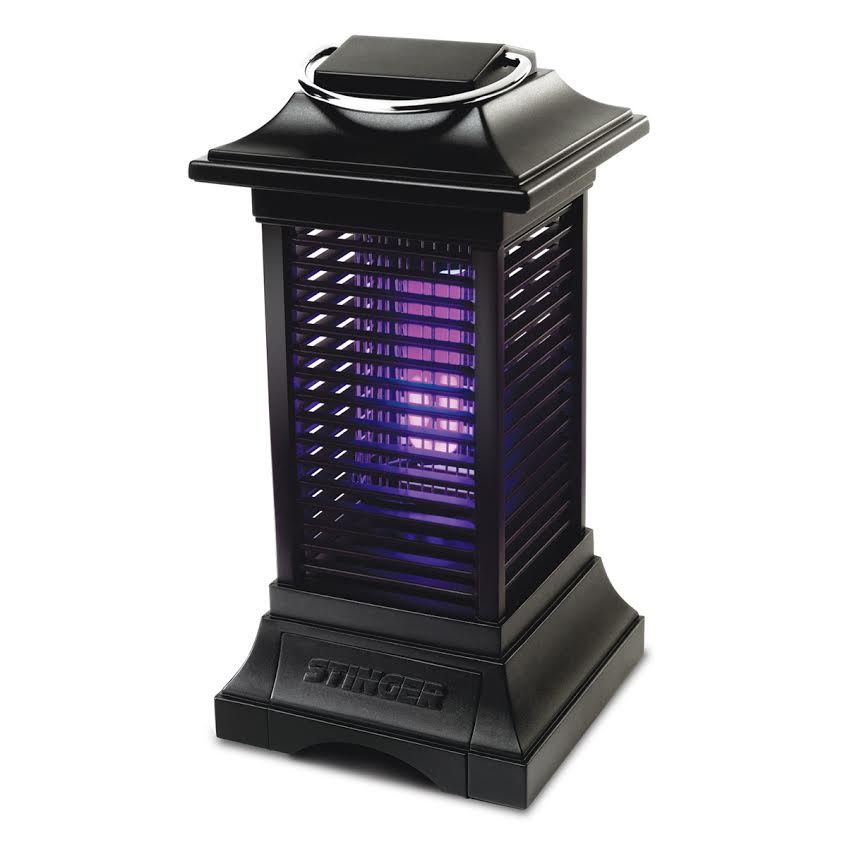
Mosquito zappers use black light to attract and then electrocute insects. These devices are shown to be very successful at doing this but, as the American Mosquito Control Associationpoints out, the two controlled studies conducted on the instruments show the vast majority of bugs they kill are not mosquitoes. This can hurt the ecosystem by killings the bugs that we actually need. Indeed, reduced numbers of moth and beetle prey species have contributed significantly to the decline of songbird populations in many affluent suburbs, reads the website of the American Mosquito Control Association. Insect electrocution devices undoubtedly bear some responsibility for this phenomenon. Mosquito zappers go for around $25 from online sellers.
Ultrasound device makers that are supposed to scare off mosquitoes or confuse them to disrupt their mating also get a bad rap from AMCA: At least 10 studies in the past 15 years have unanimously denounced ultrasonic devices as having no repellency value whatsoever. The fact is that these devices just do not work marketing claims to the contrary. They start around $10.
Use Mosquito Traps To Avoid Zika
The biggest boom in household mosquito control has been with devices that bait bugs with an odor-emitting attractant, then suck them in with a vacuum to be electrocuted or dispatched in some other way. These devices, which range from $50 up to several hundred dollars, come in a wide array of styles and sizes some claiming to protect large swathes of land, an acre or more.
They require maintenance to replace traps and clean out dead bugs, but AMCA lists them among the most promising and evolving technology. Effectiveness depends on factors including the size of the mosquito population and the proximity to breeding habitat.
Specialty Clothing
Another option is permethrin, a chemical sprayed on clothes, shoes and gear that will be good for a few wash cycles. You can also purchase clothes with permethrin built in (the main brand is Insect Shield). The chemical is EPA-registered in both spray and factory-added forms. The environmental agency has found no evidence of negative effects on pregnant or nursing women or their children. Clothing with permethrin built in costs up to $80 from Insect Shield. Permethrin spray costs around $15.
Clothing with premethrin should be washed separately from other clothes, as the chemical is meant only for outerwear. Also keep in mind that premethrin-treated clothing is only good for the parts of the body that it covers. Other body parts that remain exposed, like hands or ankles, should be given a dose of insect repellent.
Dump Standing Water
Just two ounces of standing water is enough to breed 300 mosquitoes. So keep making those rounds to check gutters, tarps, recycling and trash bins, potted plants anything that can collect a breeding pool.
Ranson of the Florida Keys Mosquito Control Board believes that is the single most important step to stop the spread of Zika virus and other mosquito-borne diseases. A mosquito has to bite a diseased person, develop the virus in themselves, and then bite someone else. They don’t create it in their own body.
Use DEET To Avoid Zika
Even with any of the options above, using repellent also makes sense. Less than $10, depending on the size.
DEET should be the new perfume in Wynwood, said Dr. Matthew DeGenarro, director of the Laboratory of Mosquito Genetics and Behavior at FIU. He uses genetics to study how mosquitoes detect human scents and swears by DEET, suggesting produces with at least 15 percent concentration.
Although the chemical’s safety has been a source of debate among some consumers for years, the Environmental Protection Agency, the U.S. Food and Drug Administrationand the American Academy of Pediatricts are clear on the matter: When used as directed, it is safe, even for pregnant and breastfeeding women and for children. The EPA notes that in its extensive review of the data on the topic, there were no toxic effects seen in studies even with doses that greatly exceeded those found in DEET products.
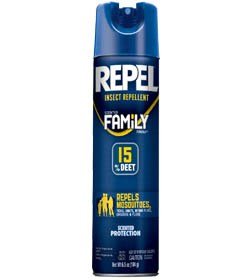
DEET should not be used on children younger than 2 months. Parents should also be careful not to use combination sunscreen/insect repellent products because sunscreen must be reapplied every few hours, while insect repellent should not be reapplied as often. The American Academy of Pediatrics suggests products with concentrations ranging from 10 to 30 percent, which are similar in effectiveness but vary in how long they last (two to five hours, respectively).
Alternative Repellents
If you don’t want to use DEET, Consumer Reports also found two other active ingredients effective and safe: picaridin and oil of lemon eucalyptus. Both can retail for less than $10, depending on the size. Picaridin is a synthetic compound that mirrors a chemical found in the black pepper plant. Look for a concentration around 20 percent. A product with this main ingredient (Sawyer’s Picaridin 20% insect repellant) currently tops Consumer Report’s list of recommended insect repellants.
Mijares, from the Bass Pro Shops, says picaridin is popular among his customers. The fishermen here in South Florida have told me that DEET sometimes deteriorates their gear, he says. It’s not as harsh on your skin. They come in droves and buy it. He still also recommends DEET, though, pointing to the CDC’s conclusion that the product is safe.
The Consumer Reports brief also gives high marks to products containing oil of lemon eucalyptus. Look for concentrations around 30 percent. This natural product is EPA-registered, meaning it has been stamped by the agency as safe and effective even for pregnant and breast-feeding women. However, the FDA says oil of lemon eucalyptus should not be used on children under the age of 3.
Consumer Reports said other natural products cedar, cinnamon, citronella, lemongrass, and peppermint did not perform well in tests, with some wearing off after just 30 minutes.
Both picaridin and oil of lemon eucalyptus come with a head’s up for potential eye irritation.
Citronella Candles
Mijares, of Bass Pro Shops, says that citronella candles have gotten mixed reviews. I’ve had customers swear by them, and some come back and say, ‘I wish it worked better,’ he says. He stresses they should be used only outside in a well-ventilated area. They are available for less than $10 online.



